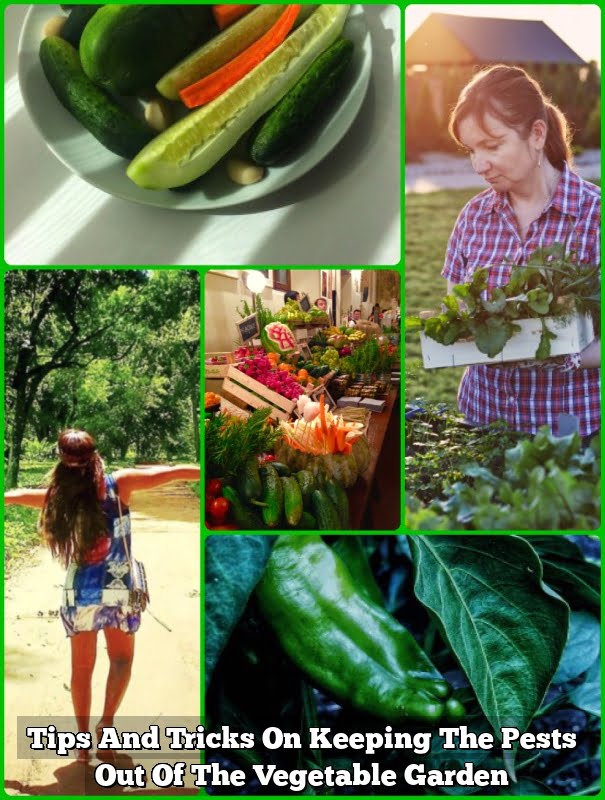Introduction
Having a vegetable garden that is free of moles can be immensely beneficial. Moles are burrowing animals that can cause severe damage to your vegetable garden, as they may feed on the plants’ roots or simply disrupt their growth by digging tunnels near them. Having a mole-free vegetable garden helps ensure that your vegetables are able to grow healthily and without obstruction. It also prevents the potential destruction of property caused by mole tunnels and holes. Finally, not having moles around allows you to enjoy your vegetables free from any worries about contamination from their activities!
Recognizing Mole Damage
Moles can cause a lot of damage to vegetable gardens. Tunnels created by these pesky subterranean rodents are often visible on the ground’s surface as raised ridges or mounds of fresh soil. To make matters worse, the movements of frenzied moles through the soil disturb root systems and damage underground flowers, vegetables, and other plants. They feed on earthworms, grubs, and other insects that can be beneficial in soil health, thus reducing the efficiency of your garden’s ecosystem and consuming vital nutrients intended for your plants. In addition to this direct destruction, areas with moles are highly susceptible to weeds because they have disrupted topsoil structures making conditions more favorable for germinating weed seeds. This makes it harder to maintain organic garden conditions as weeds accelerate nutrient loss from the soil due to their excessive water and sunlight needs compared to most vegetable crops. To help protect your garden from moles and their consequences it helps to check for signs of mole activity regularly during all seasons that follow rain or snow events. If possible, fence out these pests with an appropriate wire mesh fence several inches below ground level wrap around vulnerable areas of the garden. You can also reduce mole presence by applying predatory nematode preparations throughout your garden – these naturally occurring parasites attack grubs in the soil which are a main food source for moles
Preventative Measures
There are several preventative measures that can be taken to help keep moles from entering and destroying a vegetable garden. One of the most effective ways is to hire a professional pest control company who will use traps or sprays to catch and remove the animals. Additionally, fencing around the perimeter of the garden can help deter some moles as they don’t like crossing over physical barriers. It is important to note that fencing must be deep enough into the ground to prevent any tunneling creatures from entering underneath it. Furthermore, planting peppermint or other strong-smelling plants around the garden can act as another deterrent as moles tend to stay away from particularly pungent odors. Finally, setting up vibration strips around the garden along with noise makers may also prove successful in keeping moles at bay.
Fencing and Other Barriers
Installing a fence around your vegetable garden is probably one of the most effective ways to keep moles from eating your prized vegetables. It’s important to use a wire mesh with small enough holes that even the smallest mole will not be able to squeeze through. Buried 6–8 inches deep, this barrier should stand up against the most determined wild animals. Other things you can do include putting up boards and out-building walls or using sheet metal or chicken wire instead of regular garden fencing if you have an excessive mole problem. You can also try using below-ground traps or electronic control devices like ultrasonic repellents. These motion sensor devices are based on sonic waves, which may potentially scare off any animals without doing them any harm.
Chemical Repellents
Chemical repellents are the most effective way to discourage moles from entering your vegetable garden. By spraying these repellents around the perimeter of your garden, you can deter moles from entering and disrupting your vegetables. These typically consist of animal management products with ingredients such as castor oil, garlic oil, cayenne pepper, or piperonyl butoxide. Repellent sprays have very little to no effect on existing moles and are primarily used to prevent new ones from entering. As such, it is important to apply these repellents throughout the growing season in order to create a strong deterrent of keeping them out and eliminate the need for more drastic measures. In addition to this, they need to be reapplied regularly as they will lose their potency over time due to environmental factors such as rain or wind. It is also important to note that chemical repellents should not be used in conjunction with any other mole management strategies available like traps as this may lead to detrimental outcomes for both parties involved. Ultimately, by implementing chemical repellents around the perimeter of your vegetable garden you can build an effective barrier against further mole disruption and keep your garden vibrant and healthy throughout the year.
Traps and Poison
Traps are one of the most common methods to get rid of moles. Mole traps come in many different forms and designs, with varying degrees of effectiveness. The Starr or Scissor trap is the traditional kind, which involves a metal plate that needs to be set around the tunnel opening. Once the mole has run over the plate, it catches its body—usually by the head—trapping it while still alive. This type requires care and practice to make sure it is correctly set and placed at the entrance of an actively used mole tunnel. Another popular kind is a harpoon-style mole trap, which works on similar principles but has a steel stake that penetrates deep into the ground when triggered.
Poison is another form of control for moles, though trapping remains the preferred method for safety and humane reasons (for more information on poisons used for moles see here). Poisoning runs the risk of simply killing a few moles within a given area but not eliminating them as a whole. Furthermore, many poison baits labeled as “mole bait” may also attract rodents such as shrews or voles that could suffer if improperly used.
Other Solutions
If DIY strategies fail to keep moles out of your vegetable garden, you may need to consider professional services for Mole Control. This option involves trapping or poisoning the moles with specialized chemicals that are often only available to pest control professionals. Additionally, humane traps can be employed to capture the pests alive and relocate them far away from the garden area. Comprehensive poison bait trapping systems placed in strategic locations can provide an immediate reduction in mole infestations. Repellent plants and noise devices are other alternatives used by pest control operators to chase moles away from gardens. Finally, pest exclusion methods that limit forming underground tunnels and runways can help protect gardens over the long term. Professional services for Mole Control offer a variety of options, but many states require that they are administered by certified technicians who hold proper licensing and follow approved regulations.
Conclusion
Once you have taken steps to keep moles out of your vegetable garden, it’s important to keep it healthy and watch for signs of mole activity. Monitor the surface of your garden daily to look for new molehills or tunnels, and cover any tunnels or mounds with soil. If you find that tunnels have been reopened after being covered in soil, use lightweight stakes or long boards to pin down the surface. You may also want to consider using wire mesh fencing installed at least two feet deep into the ground as a form of barrier around your vegetable garden. Additionally, make sure that your plants are free from pests and diseases by regularly treating them with an insecticidal soap or herbicide spray.
By taking these preventive measures and keeping regular watch in your garden, you can hopefully enjoy a vegetable garden free from unwanted visits from pesky moles! Gardeners who stay diligent about keeping their gardens free from moles will ultimately be able to enjoy their harvests all season long. Be sure to keep checking the yard for any signs of damage caused by wildlife and maintain healthy plants through regular fertilization and pest control methods. Making sure that your vegetable garden is inviting for birds but not for moles can ensure that you can appreciate its beauty without any unpleasant surprises!

If you’re looking to get into vegetable gardening, or are just looking for some tips on how to make your current garden better, then you’ve come to the right place! My name is Ethel and I have been gardening for years. In this blog, I’m going to share with you some of my best tips on how to create a successful vegetable garden.





